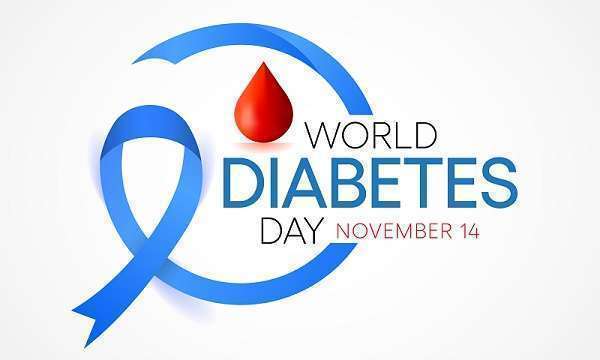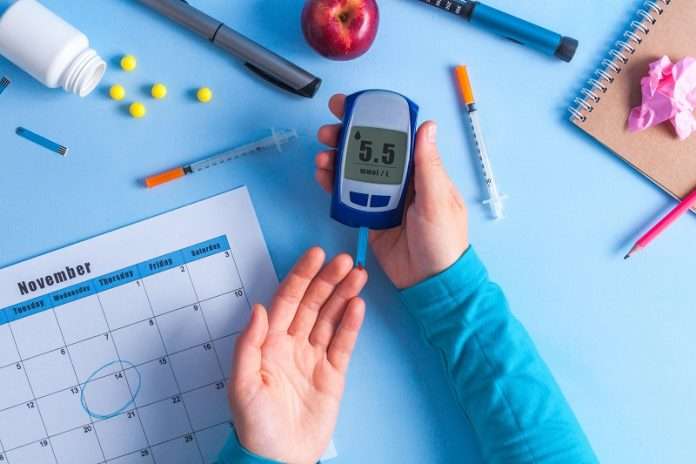World Diabetes Day is observed every year on 14 November, to commemorate the birthday of Sir Frederick Banting who, along with Charles Herbert Best, discovered the hormone insulin in 1922. Despite this year marking the 101st anniversary of the discovery of insulin, today there are an estimated 415 million people worldwide who are diabetic. Estimates indicate that in 2040, more than half a billion people will have diabetes.
Kuwait ranks third in the number of diabetics globally. The number of people who do not know they have diabetes, or have prediabetes — a condition where the person has higher than normal blood sugar levels, but not high enough to be a type 2 diabetic — are also high in Kuwait.
Diabetes is a disease in which a person’s body cannot produce or use enough insulin. Type 1 diabetes is a chronic condition. In this condition, the pancreas produces little or no insulin. Different factors such as genetics and certain viral infections can cause type 1 diabetes. Although type 1 diabetes usually appears in childhood or adolescence, it can also occur in adults.

Diabetes mellitus, also known as type 2 diabetes, is characterized by high blood sugar levels, which is a result of decreased insulin production by the pancreas, or resistance of the body’s cells to insulin.
A third type of diabetes, gestational diabetes, occurs in some people during pregnancy and causes high blood sugar levels that can affect pregnancy and the baby’s health.
Hyperglycemia is a condition in which the blood sugar level is elevated, and if left untreated, it can damage various organs of the body. Proper treatment of diabetes and regular check-ups can prevent many of these complications.
Blood tests can help your doctor diagnose diabetes, prediabetes, and gestational diabetes. Blood sugar is determined by the amount of glucose in your blood. A blood test will show if you have more than a healthy sugar level. A blood test can also help identify which type of diabetes you have. There are different types of blood tests.
Prediabetes is seen long before diabetes in a diabetic patient. Once prediabetes is detected, it does not take long to progress to diabetes, so you will need to follow exercise, medication, and diet regimens prescribed by your doctor.
Depending on what type of diabetes you have, blood sugar monitoring, insulin, and pills may be part of your treatment.
There are mainly five types of insulin:
Fast-acting insulin: Insulin, which acts 2.5 to 20 minutes after injection, has its peak action between one hour and 3 hours after injection, and lasts up to 5 hours.
Short acting insulin: Acts within 15 minutes, lasts about four hours, and should be taken before each meal to prevent blood glucose levels from spiking.
Intermediate acting insulin: Works within two hours and continues to work for 12 hours, usually taken twice a day.
Mixed insulin: Mixed insulin is a combination of very fast-acting or short-acting insulin and intermediate-acting insulin.
Long-acting insulin: Long-acting insulin, which takes 2-4 hours to work in the body, but lasts for 24 hours, helps keep blood glucose levels in check throughout the day.
Blood pressure, heart disease and diabetes are very common in Kuwait due to obesity. Over 40 percent of the population in Kuwait are obese. Kuwait now has the most obese individuals in the world. Although previously, a ‘body mass index’ (BMI) test was used to determine whether a person is obese, this test was not consistent.
A newer and remarkably more consistent test for obesity is the waist-to-height ratio, or WHtR. According to the WHtR, a person is obese if their waist circumference is more than half their height. Thus, a WHtR of .5 or less is healthy, and a WHtR greater than 0.5 is obese (although the cutoff rises to .6 for patients age 50 or older).
There are several measures that people can take to reduce the risk of diabetes. These include:
Losing excess weight: The American Diabetes Association recommends that people with prediabetes, lose 7 to 10 percent of their body weight to prevent the progression of the disease. More weight loss brings greater gains.
Do more exercise: Physical activity also helps control blood sugar levels and lowers your risk of heart disease and nerve damage. A recent study showed that half an hour of walking or other low-intensity exercise daily, combined with a low-fat diet, reduced the risk of developing type 2 diabetes by 58 percent.
Avoid foods high in carbohydrates: Foods containing sugar and flour, such as breads, bakery products, pastries, pasta, fruit juices, and processed foods with added sugar.
Avoid alcohol and carbonated drinks: Drinking alcohol, smoking, sedentary lifestyle, uncontrolled eating, eating at the wrong time, excessive consumption of sugar, can lead to diabetes.
The most important motto for diabetic people is, ’Keep Blood sugar under control. Equally important is ‘Prevention of Diabetes for all people at high risk of developing it. By educating ourselves , our friends , and our family we can keep diabetes at bay.

Dr Jibin John Thomas MD
Registrar -Internal Medicine & Diabetologist International Clinic – Farwaniya , Kuwait

















